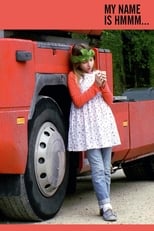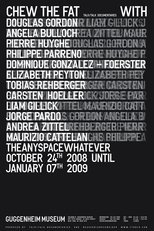

Douglas Gordon
Born: September 20, 1966
in Glasgow, Scotland, UK
in Glasgow, Scotland, UK
Douglas Gordon (born 20 September 1966) is a Scottish artist. He won the Turner Prize in 1996, the Premio 2000 at the 47th Venice Biennale in 1997 and the Hugo Boss Prize in 1998. He lives and works in Berlin, Germany.
Movies for Douglas Gordon...

Title: My Name Is Hmmm...
Character: Peter Ellis, le camionneur
Released: October 7, 2013
Type: Movie
Céline, 11, meets Peter, 40. Together they go on a "luminous journey" in his beautiful red truck. She, escaping her desperate and incestuous father; he, far from his native Scotland and the sad memory of his lost wife and daughter. In the course of a few days, a few words, Céline experiences her first true moments of childhood and lightness, exhilaration and trust. Peter goes towards the last days of a life that he offers, like a sublime and aging angel, to this wounded child.


Title: Chew the Fat
Released: July 6, 2011
Type: Movie
"Chew The Fat" (Informal) - To have a long friendly conversation with someone. In the film project 'Chew The Fat', the artist Rirkrit Tiravanija, living in New York portraits a group of 12 artists (Douglas Gordon, Angela Bulloch, Pierre Huyghe, Philippe Parreno, Dominique Gonzalez - Foerster, Elizabeth Peyton, Tobias Rehberger, Carsten Hoeller, Liam Gillick, Jorge Pardo, Andrea Zittel, Maurizio Cattelan). The artists, all chosen by Tiravanija, belong to the same generation as himself and, like him, have advanced during the nineties to achieve international success. Most importantly, all are good friends of Tiravanija. This creates a particularly relaxed situation in which conversation can flow naturally between the two with personal issues coming up as easily and often as those to do with work or career.


Title: Domestic (as long as it lasts)
Character: Himself
Released: January 1, 2002
Type: Movie
Domestic (as long as it lasts) was made in 2002 in Gordon’s one-bedroom apartment in downtown New York City. It shows the artist’s foot repeatedly kicking the camera around a clean, quiet domestic space until the video blacks out. The victim of the booting, the camera itself, is recording the footage we see. The viewer is disoriented by the film’s upsetting of the conventional relationship between documenting and participating, which makes the camera complicit in the act.
